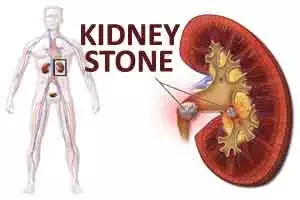- Home
- Medical news & Guidelines
- Anesthesiology
- Cardiology and CTVS
- Critical Care
- Dentistry
- Dermatology
- Diabetes and Endocrinology
- ENT
- Gastroenterology
- Medicine
- Nephrology
- Neurology
- Obstretics-Gynaecology
- Oncology
- Ophthalmology
- Orthopaedics
- Pediatrics-Neonatology
- Psychiatry
- Pulmonology
- Radiology
- Surgery
- Urology
- Laboratory Medicine
- Diet
- Nursing
- Paramedical
- Physiotherapy
- Health news
- Fact Check
- Bone Health Fact Check
- Brain Health Fact Check
- Cancer Related Fact Check
- Child Care Fact Check
- Dental and oral health fact check
- Diabetes and metabolic health fact check
- Diet and Nutrition Fact Check
- Eye and ENT Care Fact Check
- Fitness fact check
- Gut health fact check
- Heart health fact check
- Kidney health fact check
- Medical education fact check
- Men's health fact check
- Respiratory fact check
- Skin and hair care fact check
- Vaccine and Immunization fact check
- Women's health fact check
- AYUSH
- State News
- Andaman and Nicobar Islands
- Andhra Pradesh
- Arunachal Pradesh
- Assam
- Bihar
- Chandigarh
- Chattisgarh
- Dadra and Nagar Haveli
- Daman and Diu
- Delhi
- Goa
- Gujarat
- Haryana
- Himachal Pradesh
- Jammu & Kashmir
- Jharkhand
- Karnataka
- Kerala
- Ladakh
- Lakshadweep
- Madhya Pradesh
- Maharashtra
- Manipur
- Meghalaya
- Mizoram
- Nagaland
- Odisha
- Puducherry
- Punjab
- Rajasthan
- Sikkim
- Tamil Nadu
- Telangana
- Tripura
- Uttar Pradesh
- Uttrakhand
- West Bengal
- Medical Education
- Industry
Reduced-dose CT effective for imaging of kidney stones: Study

The use of reduced-dose CT scans could be effective and reduce the need for re-imaging. USA: Reduced-radiation dose CT (RDCT) is effective in imaging patients for kidney stones, not only that it also reduces overall radiation exposure for people requiring repeated imaging, finds a recent study. The findings of the study are published in the Journal of the American College of Radiology.
Kidney stones are common, tend to recur and affects young population. The adoption of reduced-radiation dose CT for kidney stone CT (KSCT) is slow, despite evidence and recommendations. Considering this, Christopher L. Moore, Yale University School of Medicine, New Haven, Connecticut, and colleagues aimed to design and test an intervention to improve adoption of RDCT protocols for KSCT using a randomized facility-based intervention.
For this purpose, facilities contributing at least 40 KSCTs to the xxxx dose index registry (DIR) during calendar year 2015 were randomized to intervention and control groups. The Dose Optimization for Stone Evaluation intervention included customized CME modules, personalized consultation, and protocol recommendations for RDCT.
The researchers recorded dose length product (DLP) of all KSCTs at baseline (2015) and compared with 2017, 2018, and 2019. They then compared change in mean DLP between facilities that participated (intervened-on), facilities randomized to intervention that did not participate (intervened-off), and control facilities. Difference-in-difference between intervened-on and control facilities is reported before and after intervention.
Of 314 eligible facilities, 155 were randomized to intervention and 159 to control. There were 25 intervened-on facilities, 71 intervened-off facilities, and 96 control facilities.
Key findings of the study include:
- From 2015 to 2017, there was a drop of 110 mGy ∙ cm (a 16% reduction) in the mean DLP in the intervened-on group, which was significantly lower compared with the control group.
- The proportion of RDCTs increased for each year in the intervened-on group relative to the other groups for all 3 years.
These findings show implementing reduced-dose CT protocols is a feasible option for kidney stone imaging in the long-term, the team said. But, providers must be conscientious about using it on a wider scale.
"It is the shared responsibility of medical users of radiation dose or radiation dose-based imaging tests, such as CT, to ensure use of as low as reasonably achievable radiation doses," the team said. "This is particularly true for an indication, such as kidney stone CT, in which there is unequivocal evidence that reduced-dose CT can be employed without adverse effects."
Reference:
The study titled, "Radiation Dose Reduction in Kidney Stone CT: A Randomized, Facility-Based Intervention," is published in the Journal of the American College of Radiology.
DOI: https://www.jacr.org/article/S1546-1440(21)00398-7/fulltext
Dr Kamal Kant Kohli-MBBS, DTCD- a chest specialist with more than 30 years of practice and a flair for writing clinical articles, Dr Kamal Kant Kohli joined Medical Dialogues as a Chief Editor of Medical News. Besides writing articles, as an editor, he proofreads and verifies all the medical content published on Medical Dialogues including those coming from journals, studies,medical conferences,guidelines etc. Email: drkohli@medicaldialogues.in. Contact no. 011-43720751


